For Sophia Brown, The Witcher: Blood Origin Came at the Perfect Time
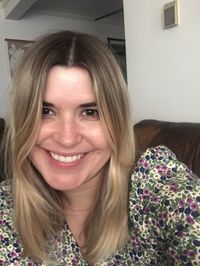
For Sophia Brown, detaching from her character Éile in The Witcher: Blood Origin took a bit of time. The four-part prequel series, which premiered on Netflix on Christmas Day, was filmed in 2021 over three months in the United Kingdom, and Brown didn’t get her first peek at the episodes until December of last year at the show’s premiere. "Sometimes, it’s just so intense,” she says from her home in London. "It’s still a part of you, and I can’t really let the experience go.” Set 1200 years before the events of The Witcher, the series centers on a group of outcast warriors who form an unlikely alliance to fight an unstoppable force and, in doing so, create the first prototype witcher. At the center of the group is Brown’s Éile (aka The Lark), a warrior turned bard (one who recites tales of legend usually through song) looking to atone for her violent past.
When we first meet Éile, she is performing at a local watering hole in Inis Dubh. She comes across as gentle, and her beautiful voice commands the room until an inebriated patron stirs up trouble. Suddenly, we’re introduced to the bard’s deadlier side. That’s the thing about Éile—she is so many different things rolled up into one beautifully complex character. The role allows Brown to shine, showing multiple facets of her range as she seamlessly moves from fierce battle scenes to moments of vulnerability. Brown previously starred in the UK projects Clique and Giri/Haji, and the Blood Origin role serves as her breakout on a global scale. The rising star is on a fast trajectory with two more projects (Russell T Davies’s romantic comedy You & Me and the action thriller Borderland) coming up this year.
Quickly adding Brown to our "ones to watch” list, we chat with the actress about stepping into the Witcher universe, working with the iconic Michelle Yeoh, and how fashion plays a role in her artistry.
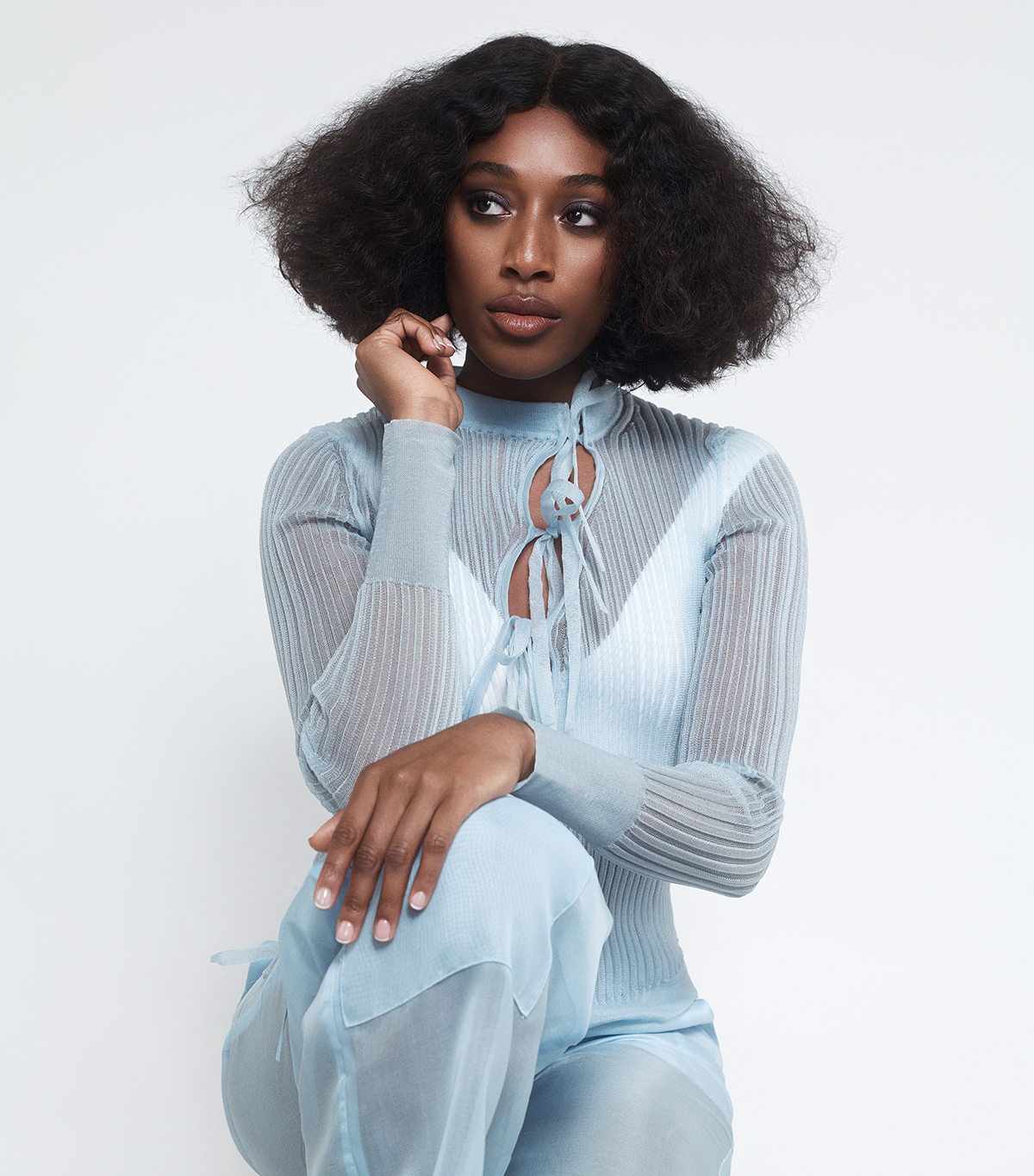
What did you know of the Witcher series going into this project?
I had seen the series, of course. It was everywhere. And I had a friend who was in the show, so I also watched it for him. It found me at a time where I was watching quite a bit of fantasy and also diving into some sci-fi because my brother-in-law is quite into that. So it came at the right time for me and the stuff that I was watching. By the time the audition came around, even though I wasn’t going to do the audition just for personal reasons, I didn’t really realize what I was getting into until I booked the job and was at the studio and they showed me the art department room. It was only then that I was like, "Oh, okay, I’m getting a real picture of this world and getting an understanding of the location, the environment, and the tone.” Even though it is the prequel to the marquee series, it really is such a stand-alone thing. So it was really exciting.
Prior to this, were you someone who enjoyed fantasy stories?
No, I wouldn’t say that I was. My dad loves film, and he loves horror and gore, and I remember staying up late at night and sneaking up with him watching a film and my mom telling him off. I was always exposed to quite elaborate films, so that just spilled over to me always loving thrillers and horrors and loving the way that film captures those intense, hysterical moments. But fantasy was never something that I necessarily would opt to watch. It was always something from a young age that I wanted to create for myself just to be in. When I was younger, I would always make up worlds in my room in my bunk bed, put my duvet down, and pretend I was in a castle. So I would create those worlds for myself and really try to ask my siblings to join in, but I never really imagined I would be able to drop into an actual world and do that. It’s been so fulfilling to be able to connect to my inner self and play again in this real make-believe world.
Let’s talk about your character Éile. What did you find interesting about her particular story and how she fit within the group of warriors?
I loved how she straddled so many different elements of women that I know. She was so strong and so physically capable and determined, and then at the same time, she was so soft and erratic and impulsive, but she was consistent in those sorts of things. There were so many elements in her that she disliked but also that she loved, and it was about her coming to terms with those sorts of facets of her character. I connected with her because she was an artist, and she loved doing that, but she also had such a sense of duty with her family, and she loved the world. When I read it, my first instinct was that Éile was really connected with her environment and her land, and she really let the land speak to her, and that was the foundation for her intuition and her gut. There were so many things that resonated with me, and I knew I had things that I wanted to pour into her, elements of women in my family and myself and friends. When I saw her interact with the other people, it made me see her in other ways. She was a lone wolf but also really wanted to find her people. It was interesting being able to get to know Éile on her own in different parts of the story and her relationships—whether they are with Scían, who is like a mother type, or Fjall, who she is trying to soften herself to as a friend and eventually a romantic love. It was really nice being able to play so many elements of a person, especially in fantasy.
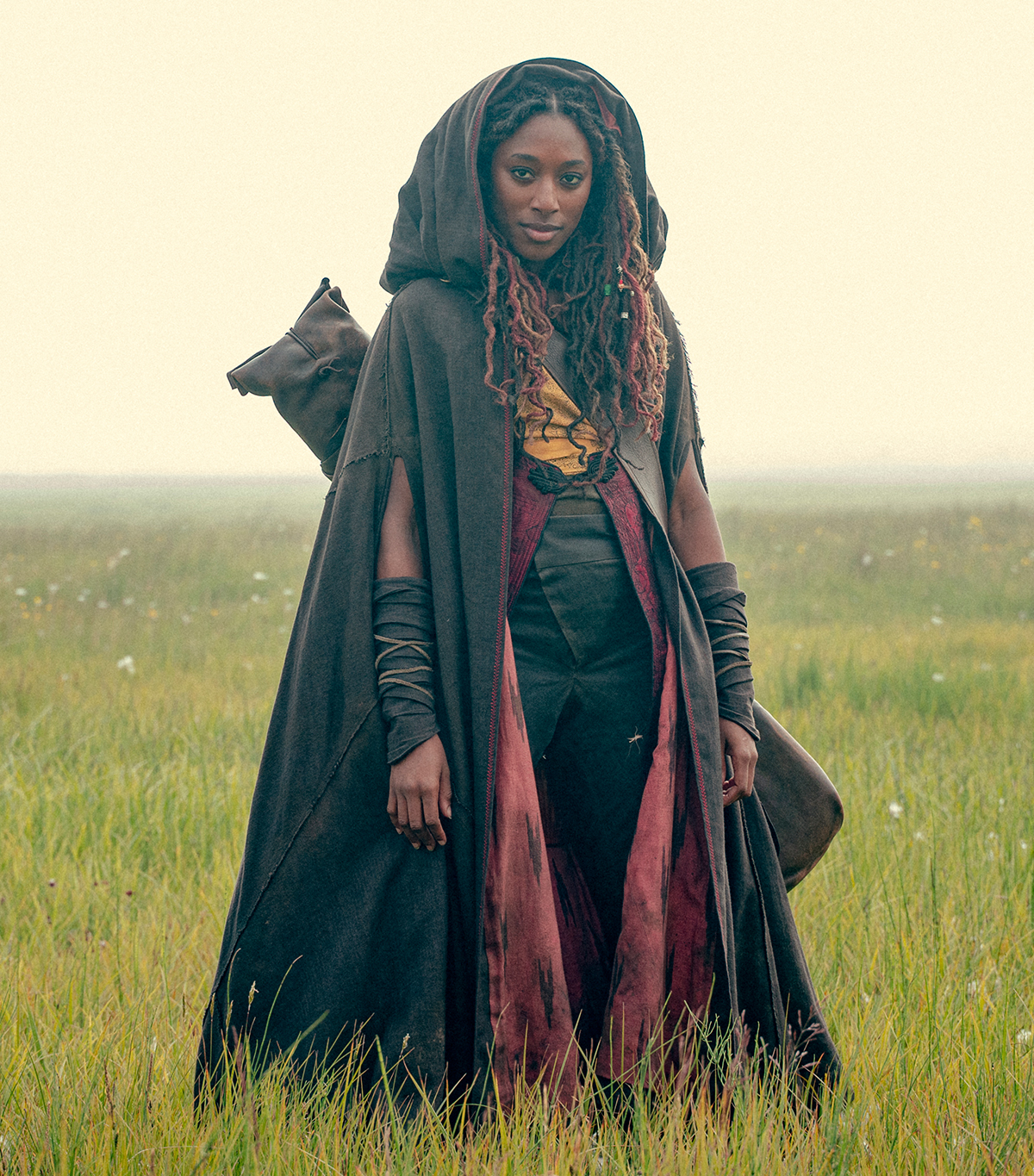
In an attempt to escape her clan’s warrior ways, Éile becomes a bard, which entails singing and telling tales of legend. Why do you think she was drawn to this profession?
Me and Michelle worked quite closely because we had come up with the idea that Michelle’s character Scían was the one who showed [Éile] the key harp. [Scían] also has the ability to play music and is also a messenger in her own right, so I think Scían and Éile’s relationship was the first time that Éile was able to soften and feel a sense of love because that’s not necessarily bred within the clans. With her being able to feel and that being done through music and through Scían, who became her mother figure, I think it was this eruptive moment of her falling in love for the first time. It’s a relationship she never has to put down, and it’s an unrequited love that can change and grow in so many ways. So for her, it’s the birth of a new person for Éile. There was no choice. It was decided for her, and she just had to surrender to that. And once she does, she gets on the journey and eventually finds herself. I love that because being an artist, being an actor, it can be really difficult to surrender to, say, the industry, or you don’t really get to create as you want to create. It’s determined by people who want to employ you. But I’ve learned from this process that I want to create my own work and make my own films and write and produce them, so I’m surrendering to do that idea myself.
Éile performs throughout the series, but she has this beautiful song in episode three that really showcases the power of her voice. Were you nervous at all about having to sing for this?
You know what? I wasn’t. My older sisters are incredible singers, and I’ve had the pleasure to witness the growth of them being artists from before I can even remember, so singing, for me, has always been quite comforting. It’s not something I’ve ever thought I’d do as a career. It’s just been something that… I sing with my family. I sing with my partner, and it’s something I do for joy and that gives me pleasure, whether I’m on key or off-key. It makes me feel calm. I didn’t overcomplicate it by thinking, "God, I have to be a singer.” I’m Éile. I have Éile’s voice, and this is what Éile’s voice sounds like, and this is how Éile sings. I just wanted it to feel real and tender. She’s not a vocalist. She’s not going to be singing the hits of Dua Lipa or Motown or something. She’s a messenger, and that’s her voice.
What are those songs you love to sing with your family or friends?
If I’m going to do a karaoke song, it’s going to be "Misery Business” by Paramore. For the prep for The Witcher: Blood Origin, the playlist I had—and I was singing it constantly—was like Joni Mitchell, Tracy Chapman, Damien Rice, Bon Iver. Particularly, Tracy Chapman’s "Crossroads” was the song that I put on to drop me into moments for Éile. And Damien Rice, he’s one of my all-time favorite artists.
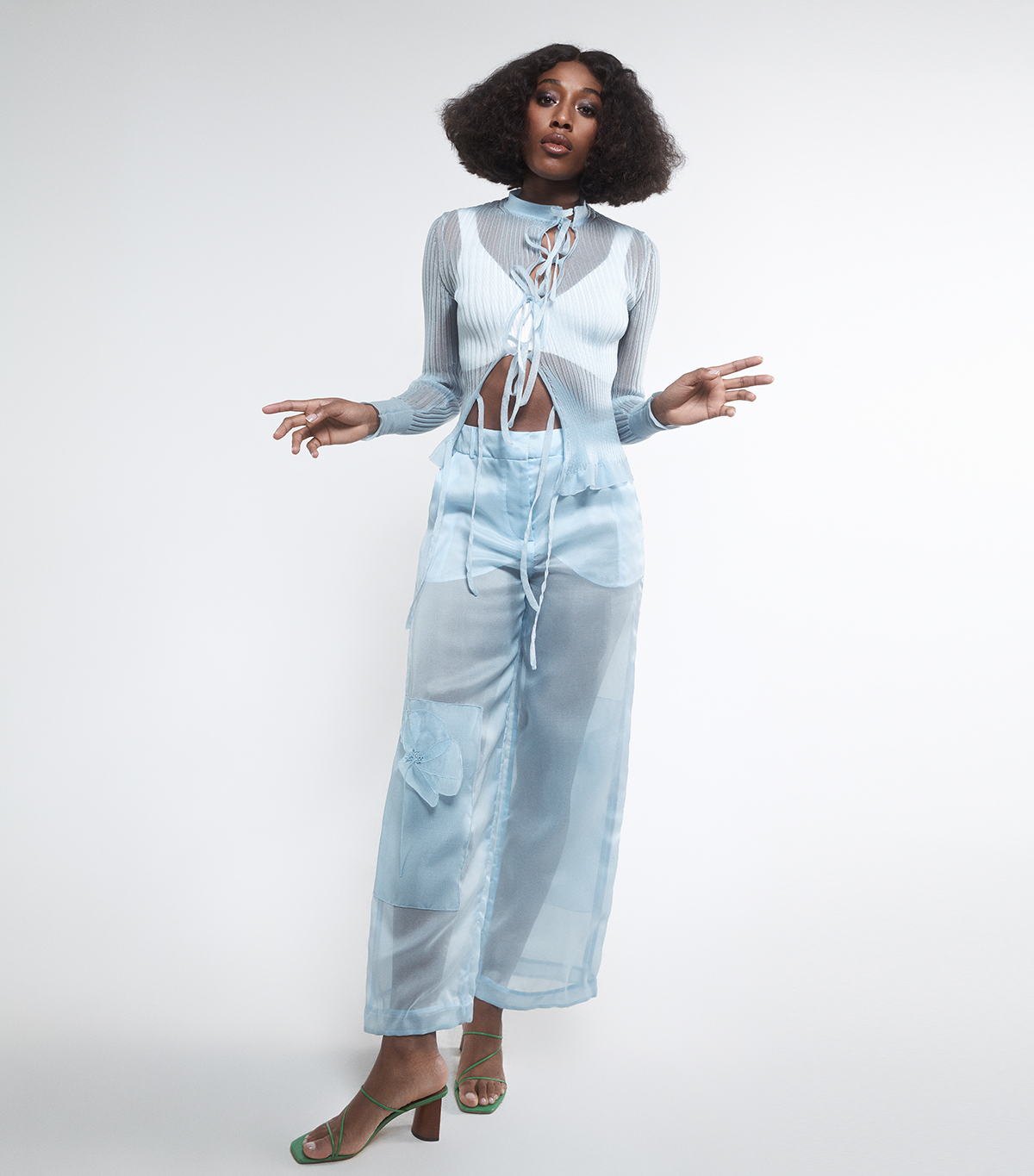
Scían is played by Michelle Yeoh, who is having such a moment right now. What was it like working with her?
We were talking about projects she had done before. I think we were talking about clothing, and in the conversation, she was like, "I was shooting this film, and we had to do part of it on green screen,” and I was like, "Oh, what was the film?” She was like, "It’s this film that has hot-dog fingers.” In my mind, I was like, "Hot-dog fingers? Okay, what B movie is this?” I only clocked it when I went to see Everything Everywhere All at Once, and when I saw the hot-dog fingers, I gasped! I messaged her (I call her Mama Michelle), and I said, "Mama Michelle, you just inspired me again. I can’t believe it.” I already knew beforehand when she was cast what an honor and privilege it was to be able to witness her work and to work with her. Then to be able to actually go through that process and learn so much from her personally and professionally, it’s just cool. And to see her now getting her flowers, I’m just like, "Wow, what an amazing position to be able to witness someone who I now regard as a friend … get her moment at her age.” It’s just incredible. I love it.
Up next, you have the Russell T Davies limited series You & Me. It’s a contemporary love story that focuses on three different characters. Can you tell me about your character Jess and what intrigued you about the project?
Immediately after doing The Witcher: Blood Origin, I wanted something that was quite simple and delicate. It was a much smaller world, and you get a little insight into these two people, and it came at the perfect time. [My character] Jess, we find her in a place where she is trying to figure out what to do in London. She has a strong sense of self, but she doesn’t know what she wants to do. And she meets Ben, a person who changes the course of her life. We get to witness little moments of their relationship growing and where they go. I was drawn to it because I haven’t seen many stories in London trying to capture that pocket of life where you are out of university, and you don’t really know what you want to do, and you’ve got some sort of qualifications, but you are broke, and you are living in this capital city that has everything on offer, but it doesn’t seem on offer to you, which I think that happens for a lot of people. And you maybe meet somebody, and you nestle in together, and they become your person, and they become closer to you than your family, and you create this little pocket of your own world, and you become obsessed with it. I really got that from the script when I first read it, and I really wanted to be that person that created that pocket of the world.
In terms of fashion and beauty, you seem to be someone who has a lot of fun mixing up your look.
I love fashion. I wouldn’t necessarily say I’m somebody who knows all the designers, but it’s an extension of my creativity, from my nail color right down to my socks. However I’m feeling on a day, I like to wear that and let that be an extension of my mood. That’s what has been so much fun as well. Doing these projects and press for them, I’ve been able to play around with my identity in so many different ways. I’m being introduced to different designers from either stylists or looking ideas up for character costumes or stuff like that. So yeah, I definitely love fashion. It’s a thread within my artistry.
The Witcher: Blood Origin is now streaming on Netflix.
Team Credits:
Photographer: Joseph Sinclair
Styling: Jenny Kennedy
Hair: Lauraine Bailey
Makeup: Kenneth Soh
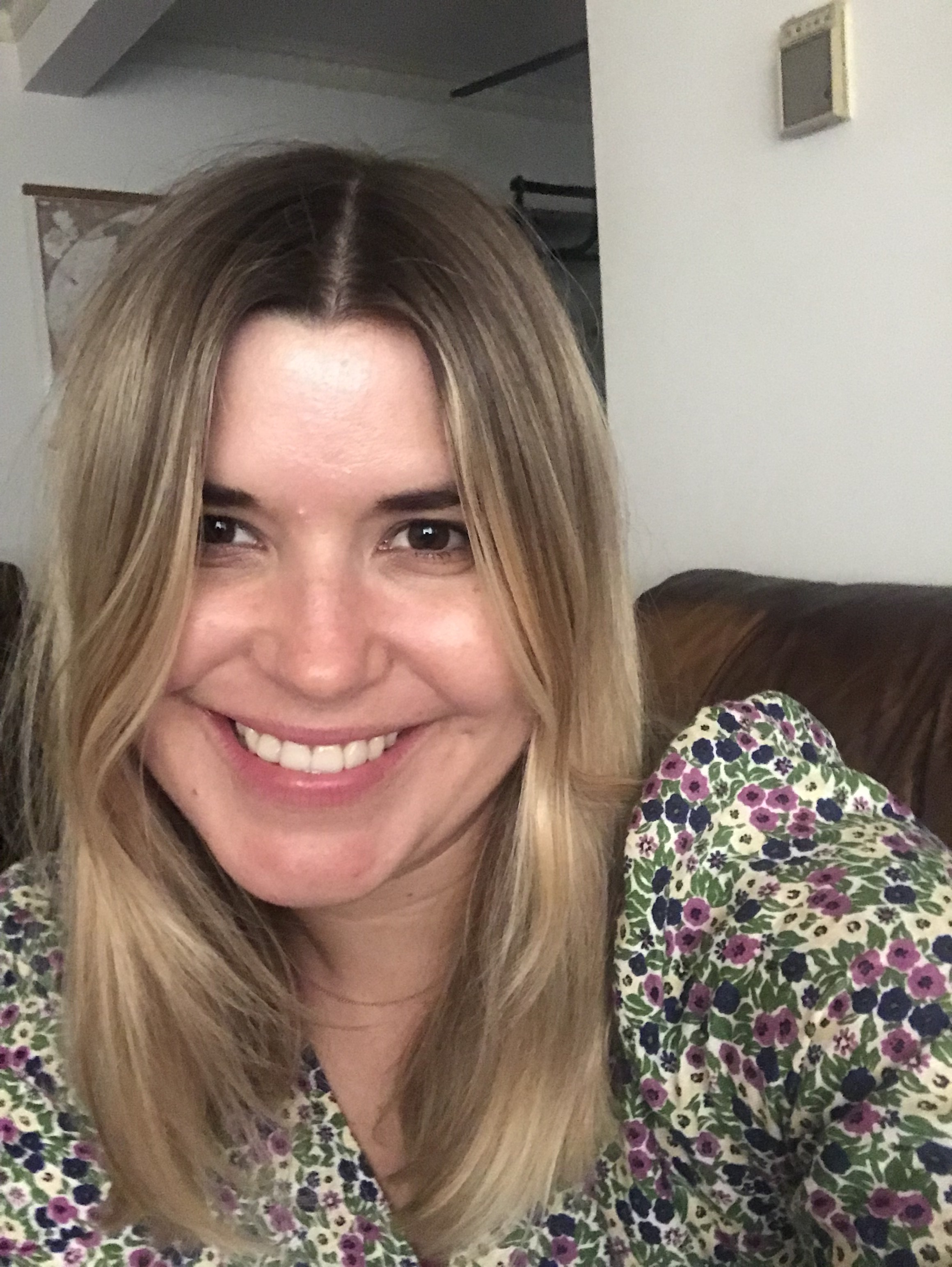
Jessica Baker has 16 years of experience in the digital editorial fashion and entertainment space. She is currently the Executive Director, Entertainment at Who What Wear where she ideates, books, writes, and edits celebrity and entertainment features.